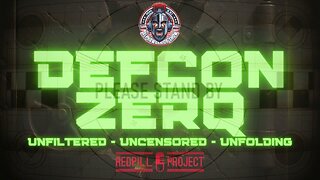Premium Only Content

Free Speech on The Internet Hangs on Section 230 Of the COMMUNICATIONS DECENCY ACT
WHAT IS SECTION 230 OF THE COMMUNICATIONS DECENCY ACT
Twenty-six words tucked into a 1996 law overhauling telecommunications have allowed companies like Facebook, Twitter and Google to grow into the giants they are today.
Free Speech on The Internet Hangs on Section 230 Of the COMMUNICATIONS DECENCY ACT
Under the U.S. law, internet companies are generally exempt from liability for the material users post on their networks.
Section 230 of the 1996 Communications Decency Act - itself part of a broader telecom law - provides a legal 'safe harbor' for internet companies.
But Republicans increasingly argue that Twitter, Facebook and other social media platforms have abused that protection and should lose their immunity - or at least have to earn it by satisfying requirements set by the government.
Section 230 probably can't be easily dismantled. But if it was, the internet as we know it might cease to exist.
Just what is Section 230?
If a news site falsely calls you a swindler, you can sue the publisher for libel. But if someone posts that on Facebook, you can't sue the company - just the person who posted it.
That's thanks to Section 230, which states that 'no provider or user of an interactive computer service shall be treated as the publisher or speaker of any information provided by another information content provider.'
That legal phrase shields companies that can host trillions of messages from being sued into oblivion by anyone who feels wronged by something someone else has posted - whether their complaint is legitimate or not.
Section 230 also allows social platforms to moderate their services by removing posts that, for instance, are obscene or violate the services' own standards, so long as they are acting in 'good faith.'
What happens if Section 230 is limited or goes away?
'I don´t think any of the social media companies would exist in their current forms without Section 230,' Kosseff said. 'They have based their business models on being large platforms for user content.'
There are two possible outcomes:
Platforms might get more cautious.
This outcome could actually hurt none other than the president himself, who routinely attacks private figures, entertains conspiracy theories and accuses others of crimes.
Another possibility: Facebook, Twitter and other platforms could abandon moderation altogether and let the lower common denominator prevail.
-
 4:10
4:10
Go Right News with Peter Boykin
7 days agoNever Justify Losing Freedom
13 -
 LIVE
LIVE
Lofi Girl
2 years agoSynthwave Radio 🌌 - beats to chill/game to
537 watching -
 33:53
33:53
Stephen Gardner
9 hours ago🔥Antifa PANICS as Trump UNLEASHES Secret Weapon!
39.2K36 -
 2:48:28
2:48:28
Badlands Media
14 hours agoDEFCON ZERQ Ep. 011: RED OCTOBER BEGINS - ARK OF COVENANT - PRECIPICE
148K100 -
 2:08:09
2:08:09
The Charlie Kirk Show
8 hours agoTPUSA Presents This is The Turning Point Tour LIVE with Alex Clark and more!!
96.9K100 -
 1:33:53
1:33:53
Inverted World Live
7 hours agoMan Sees Creature in Loch Ness | Ep. 116
43K7 -
 3:04:06
3:04:06
PandaSub2000
17 hours agoExorcist: Legion VR | PSVR 2000 (Original Live Version)
20K1 -
 2:58:54
2:58:54
SmashJT
4 hours agoCollective Shout Keeps “HARRASSING” Me | Smashcast
26.5K1 -
 3:05:38
3:05:38
StevieTLIVE
5 hours agoWarzone Wins ALL Night w/ GloryJean
28.6K1 -
 3:22:50
3:22:50
Laura Loomer
9 hours agoEP146: Loomer EXPOSES Big Tech's Complicity With Anti-ICE Violence
49K18